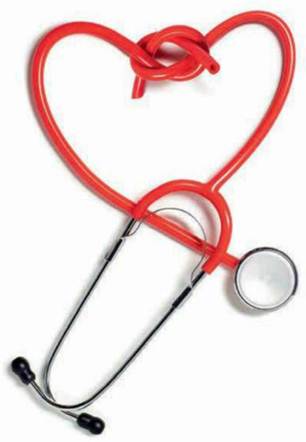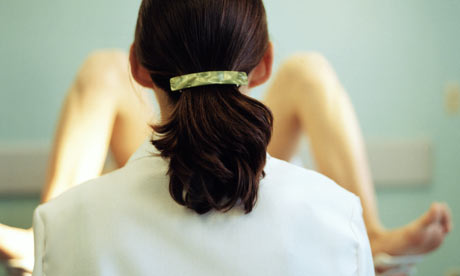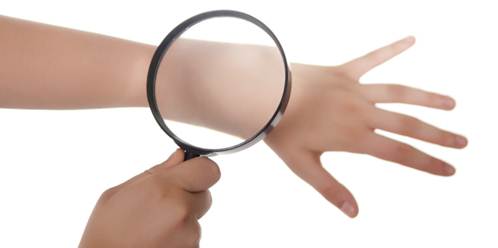Keeping on top of your health is easier when
your tests are up to date. Here’s what you need to schedule in with your GP,
writes Rachel Smith
Breast exams & mammograms
Are you “breast aware”? That means doing
regular checks for lumps or anything out of the ordinary in your breasts. “Get
into the habit of doing it daily in the shower and you’ll get used to what’s
normal, and the cyclical changes that happen with your period,” says Dr Gino
Pecoraro, a Brisbane-based gynaecologist and obstetrician and spokesman for the
Royal Australian and New Zealand College of Obstetricians and Gynaecologists
(RANZCOG).

In your 20s, 30s and 40s…
If you notice a lump, your GP may wish to send
you for an ultrasound. Your family history is important, for if many women in
your family developed breast cancer at a similar age, you may carry the BRCA1
and BRCA2 genes. These make you five times more likely to develop breast
cancer, but testing for them isn’t a decision to make lightly – the same genes
can raise your risk for other cancers, too. “It’s something to discuss with
your doctor,” says Pecoraro.
In your 50s and beyond…
As 75 per cent of breast cancers occur in
women over 50, mammograms are essential every two years if you’re aged 50 to
69, and they’re free. To find your local BreastScreen service, call 13 20 50.
Pap smears & pelvic exams
According to the National Screening
Program, Pap smears should begin when you become sexually active. “And, all
women over 18 who have ever had sex and advised to have a smear every two
years, even if they no longer have sex,” says Pecoraro. If you have an abnormal
smear you may need a repeat or you may need to see a gynaecologist, but
follow-ups are essential.

Advice for all women…
“When you have a Pap smear you should also
have a pelvic exam, where we check the size of the uterus, for lumps or bumps
on the ovaries, and any sign of endometriosis.”
If you’re over 70…
“If you’ve had two normal Pap smears in the
last five years you don’t need to continue unless you wish to,” says Pecoraro.
Did you know?
As more young women are receiving the free
cervical cancer vaccine, there are proposed changes to the national screening
program, including raising the age to 25 (until age 64), and to decrease the
frequency to every three to five years. Conventional Pap smears may also be
replaced by liquid-based cytology or HPV DNA testing, which is more sensitive
to picking up problems.
Dental checks
We should all be having dental checks every
six months – and it’s not just so you can show off your pearly whites, says
Sydney-based cosmetic dental surgeon Dr Angelo Lazaris. “Gum disease has been
implicated in a host of conditions such as heart disease, diabetes and
Alzheimer’s,” he explains.
In your 20s and 30s…
If you’re planning a family or pregnant,
maintaining good oral health is crucial. “During pregnancy gum tissue respond
overtly to plaque and can become inflamed,” says Dr Lazaris. “This can release
inflammatory proteins into the bloodstream that are implicated in premature
births and low birth-weight babies – so avoiding the dentist when pregnant is
not a good idea.”
In your 40s…
You may be more predisposed to developing
periodontal disease, a destructive form of gum disease, so keeping on top of
your check-ups is crucial.
In your 50s and beyond…
Because menopause is implicated in
osteoporosis, it’s critical to look after your teeth if you want them to last
into your later years, says Lazaris. “Any condition that affects bone quality
and density can affect the health of your teeth.”
Skin checks
The earlier skin cancer is detected, the
better chance you have of being successfully treated – but how often should you
get checked? “It depends on a lot of factors, including your family history,
your incidence of moles, your skin type and so on,” says Dr Rob Rosen from
Southderm Suburbs Dermatology in Sydney. “Many people get checked annually and
more often if they have risk factors or have had a melanoma.”

In your teens and 20s…
Start getting your moles looked at when
you’re a teenager, as the incidence of melanoma begins during this time. From
your early 20s, it’s a god idea to also start checking for non-melanoma skin
cancers like BCCs (basal cell carcinoma) and SCCs (squamous cell carcinoma),
which start developing a bit later.
In your 50s and beyond…
At this stage, if you’re getting skin
cancers and sunspots, you may need to have a skin check up to three or four
times a year, says Rosen. Ask your dermatologist what’s best.